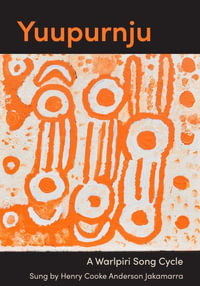When many people think of African music, music in Africa, or music in the African diaspora, the first ideas, images, and sounds that come to mind are often of rhythm, drums, and dancing bodies. These perceptions are likely rooted in two sources: (1) emblematic African and African-derived genres such as West African drumming, funk, salsa, Brazilian samba, and some forms of jazz do feature these notions prominently; and, more importantly, (2) preconceived essentialized
notions about Africa have been fueled over centuries of contact between the "West," Africa, and the African diaspora. These notions are, of course, problematic, as they reduce and often portray Africa and the diaspora as primitive, exotic, and monolithic.
In, Africanness in Action author Juan Diego Diaz explores this dynamic through the perspectives of black musicians in Bahia, Brazil. Bahia, historically the center of slave trade in the Americas and a province which today is strongly influenced by Afro-Brazilian culture, is a rich site to explore musical constructions of Africa due to the existence of a thriving African-derived culture that has been historically intertwined with discourses of black primitivism and empowerment. In
exploring how musicians engage with notions of Africanness and blackness, Diaz argues that black musicians from Bahia assert Afro-Brazilian identities, promote social change, articulate critiques to racial inequality, and connect to the African continent and other diasporic locales by creatively engaging
essentialized tropes about African music and culture. Instead of mechanically reproducing these notions, musicians demonstrate agency by strategically emphasizing or downplaying them.
Industry Reviews
"Di'&az (ethnomusicology, Univ. of California, Davis) is to be commended for this thought-provoking contribution to literature on Brazil. The author raises a pertinent question about the term "Africanness," commonly used by scholars when discussing the remnant or extension of African influence in the cultural fabric of Brazil" -- K.W. Mukuna, CHOICE Connect, Vol. 59 No. 8
"Juan Diego Díaz's Africanness in Action is a stunning example of one of the most exciting directions for twenty-first-century ethnomusicology. By taking seriously musical analysis and the discourse of composers and performers, while also relying on deep ethnography and a broad understanding of the entangled flows of expressive culture around the Black Atlantic, Díaz shows precisely how central ethnomusicological tools can be in
deciphering the complexDLand often contradictoryDLways in which rhythmic, organological, religious, historical, and sartorial symbols can be put into action by people living in the African Diaspora in Bahia." -- Michael Iyanaga,
Assistant Professor of Music and Latin American Studies, William and Mary
"At once broad in its conceptual reach and ethnographically focused on the practices of selected performing ensembles, Juan Diego Díaz's Africanness in Action illuminates varieties and degrees of sedimentation of an essentialized 'Africa' in Afro-Bahian music. Combining attention to discourse and rhetoric with detailed musical analysis, the author unveils the multiple truths of influence, invention, self-definition and aspiration. This important
and timely book will appeal to all who are interested in the practical reception of 'African music' by creators who possess the rights of heritage to extend its purview." -- Kofi Agawu, The Graduate Center, City
University of New York
"Africanness in Action presents a story of creativity and agency. In it, musical essentialism is something that musicians do rather than embody or believe and something that allows them to navigate their concerns connecting artistic creation and racial justice. Diaz's understanding of tropes as something "put into action" allows him to find scholarly meaning in Africa-inspired musical creation beyond the pursuit of a 'truth' about (or the impossibility
of) African survivalism. Africa here operates not as an objective source of musical elements but as a symbolic referent allowing black musicians to convey their agendas in a racialized context." -- Rodrigo
Chocano, Latin American Perspectives
























